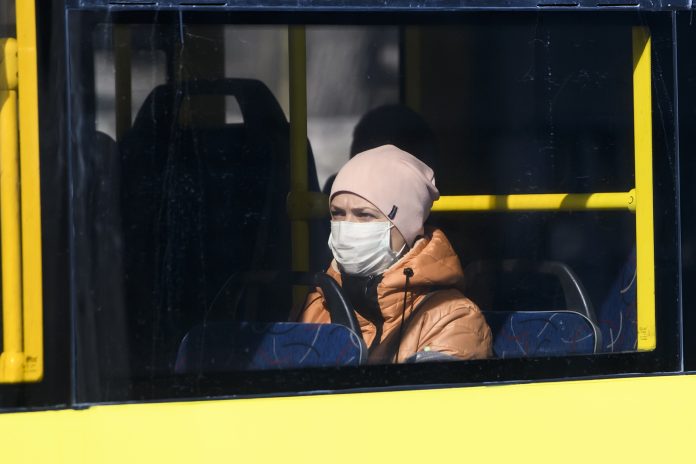European Public Health Association Executive Director, Dineke Zeegers Paget examines COVID-19 as a societal issue, not just a pandemic and argues that solidarity here is needed the most
In the powerful statement linked to the fully virtual World Congress on Public Health in October 2020, public health professionals around the world called for global cooperation and coordination as the way forward also beyond this pandemic.1 But what exactly is the way forward? In the medical field, COVID-19 is a typical pandemic, an epidemic that covers a wide geographic area and affects a significant proportion of the population. But COVID-19 is not your normal pandemic. For instance, the second wave has shown us that the pandemic is very difficult to contain. And even though testing is now widely available, people are hesitant to allow for contact-tracing apps, no matter how anonymous they may be.
Richard Horton, therefore, argues that COVID-19 is a syndemic ‘characterised by biological and social interactions between conditions and states, interactions that increase a person’s susceptibility to harm or worsen their health outcomes’. COVID-19 should thus be seen not just as a medical problem, but as a societal problem. And it is this societal problem that is causing so much upheaval.
COVID-19: Them versus us
In the first months of COVID-19, it became clear that the elderly and people with pre-existing illnesses were at a higher risk and needed protection. The first lockdown, therefore, asked everybody to protect the high-risk population, themselves and also to protect the health workforce dealing with the pandemic in the hospitals. And people complied. But, with the second wave, this compliance has changed.
The younger generation – those at limited risk and having mostly minor health problems due to COVID-19 – are basically fed up with adhering to restrictive measures. This citizen’s disobedience is widespread, stating that the right to freedom prevails over COVID-19 restrictions. This citizen’s disobedience started in the U.S., but quickly spread to a large number of European countries. And this has an impact on the containment of the pandemic. If people do not adhere to the guidelines/advice of the authorities, the pandemic can resurge again and again until a vaccine is found. This disobedience also leads to the vulnerable population being even more isolated and hesitant to pick up normal life activities again.
COVID-19 exposes increased inequalities
In a ‘Covidnar’ on 22 October 2020, Sir Michael Marmot highlighted the problem of COVID-19 eloquently: “Covid-19 exposes the underlying inequalities in society and amplifies them.”2 This is an important aspect of COVID-19, people living in poorer areas with less green spaces and smaller apartments/housing, are having a more difficult time to adhere to the guidelines. Furthermore, migrant and ethnic minority groups as well as refugees need special attention. As our EUPHA Migrant and Ethnic Minority Health Section stated in March 2020: “The chain of preventive measures is only as strong as its weakest link as not to do so spells greater disasters. Ignoring or forgetting these groups might cost them not only their lives but will undoubtedly have an impact on controlling the pandemic.”3
COVID-19 and access to healthcare
COVID-19 has also had a major impact on access to healthcare. Due to COVID-19, hospitals had to postpone screening for or -even worse- treatment of people with chronic diseases. Dr Bente Mikkelsen, Director of the WHO Division of Noncommunicable Diseases stated: “The most recent study shows that there is a disruption in healthcare services including NCD diagnosis and treatments in 69% of cases. In cancer, there are the highest numbers, with 55% of people living with cancer (having) their health services disrupted.”4 This delay in access to healthcare will have serious consequences on the population’s health far beyond the COVID-19 pandemic.
COVID-19: Fake news
COVID-19 is also often named an infodemic, an overload of information, often false or unverified, about a problem, especially a major crisis. Such fake news fuels fear and confuses the population, making the problem worse, not better. It is, therefore, important that trustworthy sources and reliable guidance are available quickly and freely. Research should be readily available, free of charge and – most importantly – researchers should formulate short ‘lessons learned’ or key points at the end of the article. This is a new task for researchers, to translate their knowledge into practice and policy. The European Journal of Public Health, EUPHA’s official scientific journal, decided quite early to make all COVID-19 related articles quickly and free of charge available to all.
Despite the naming of COVID-19, pandemic, syndemic, infodemic, it is clear that the most urgent need is for solidarity. Not just until a vaccine has been found, but beyond vaccination and conquering the COVID-19 pandemic. This solidarity should continue to be the main priority in health, in public health, and in the world in general.
References
2 https://www.youtube.com/watch?v=ahICIDa1fY8&feature=youtu.be
3 https://eupha.org/repository/advocacy/MIG_statement_on_COVID19.pdf, published March 2020.











